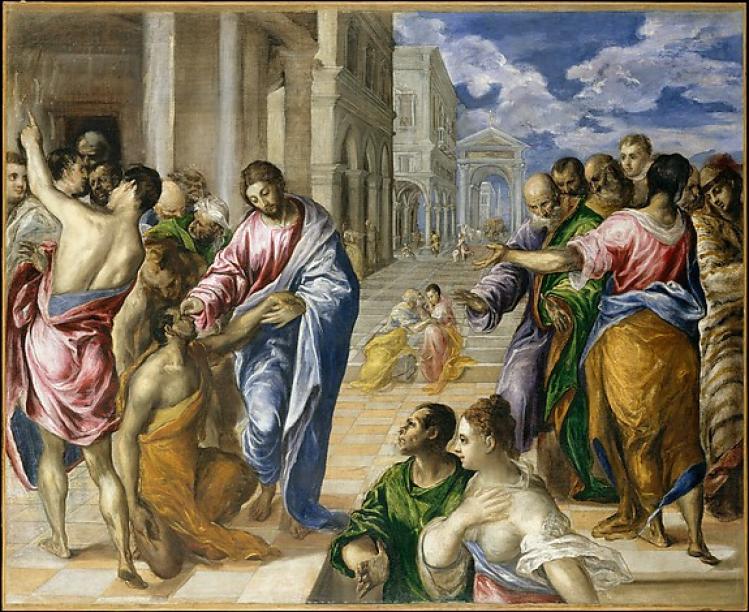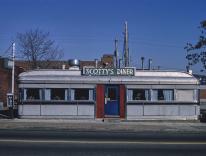
Lately my heart has been troubled. I suddenly feel as if time is running out—but on what exactly? I find myself asking, “Why not finally be the person God wants me to be?” I feel that question as a kind of ache, but, sadly, an ache is not a plan.
Which brings me to a sign I saw on a window in Helena, Montana—on Last Chance Gulch of all streets. It said, “God’s Love,” and below that were the words “Health Care for the Homeless.” Coincidentally, that very subject had been on my mind. The day before, while I was in Missoula, I’d felt on my foot what I’d thought was a blister. Later, I decided it was a spider bite, before determining, with the help of the internet, that it was in fact ringworm. So I bought some antifungal cream and solved my problem. But the next day, while I was on my way to Helena to meet the local bishop, this little matter reentered my mind at a rest stop off of Highway 12. It occurred to me how miserable it must be to be homeless—to have to beg to use restrooms, to not have enough money to get rid of a thing like ringworm, not to speak of bigger health problems. Ugh. The thought came and went, then came again when I saw that sign.
Bishop George Thomas and I had been acquainted in our Seattle days and I’d found him to be an excellent priest. I asked if we might get together while I was in Montana. We had agreed to meet at a Starbucks, and I was on my way there when I came upon “God’s Love: Health Care for the Homeless”—how wonderful, I thought, that someone is doing this work. For a moment I just stood there looking at the sign. Then I went in to learn more and maybe make a donation. As I entered, I ran into a man muttering to himself. Then I found myself alone in a room with an open Bible and brochures. I peeked around a corner. The receptionist led me to the back to see the director.
Have you ever met someone and known immediately exactly what her heart is like—just from her eyes, the look on her face, her voice? That’s how this was. The director invited me to sit down. I started to explain to her why I had come in. I saw the sign, I said. I’ve been thinking about this. But then I couldn’t say anymore.
She said, “It’s okay. Take your time.”
I was suddenly in tears. She asked, “Do you need help?”
Back in the Netherlands, where I live, I had been trying to help a man who really needs God’s help but doesn’t dare to ask for it. I think it’s because he doesn’t think he’s worthy of it. Instead of asking for help, he asks God, “What can I do for you?” As I sat there in that office on Last Chance Gulch, I thought of all the people in my life who need help—and of how hopeless it can all sometimes seem.
The director of God’s Love handed me a tissue. Go ahead, she said, let it all out. Then she told me about how she’d once been deeply depressed. “I’d worked here for years,” she said. “My husband and I started this place. When I retired I was burnt out. They threw me a party. But then I got depressed. A psychologist said, ‘You need to get passionate about something.’ That’s when I rediscovered my passion for this place.”
She asked, “Is there something you’re passionate about?”
Later, when I mentioned God’s Love to Bishop Thomas, he knew all about it. They do wonderful work, he said, and yes, she’s just like that. Before I left, this woman—her name is Ann Miller—said, “Do you want to hear a joke? I think everyone should laugh at least once every day. An old man was walking along and heard a voice saying, ‘Pick me up.’ The voice came from a frog. ‘If you kiss me,’ it said, ‘I’ll turn into a beautiful princess.’ So the man picked the frog up and put it in his pocket. ‘Hey,’ said the frog, ‘aren’t you going to kiss me?’ The old man replied, ‘At my age, I think a talking frog might be more fun.’”
I laughed. “Pick me up. Yes.” They were my words, the words of the poor, and the words of Christ himself.
Ann said: “You’ll do good.”
I hope it’s true.

